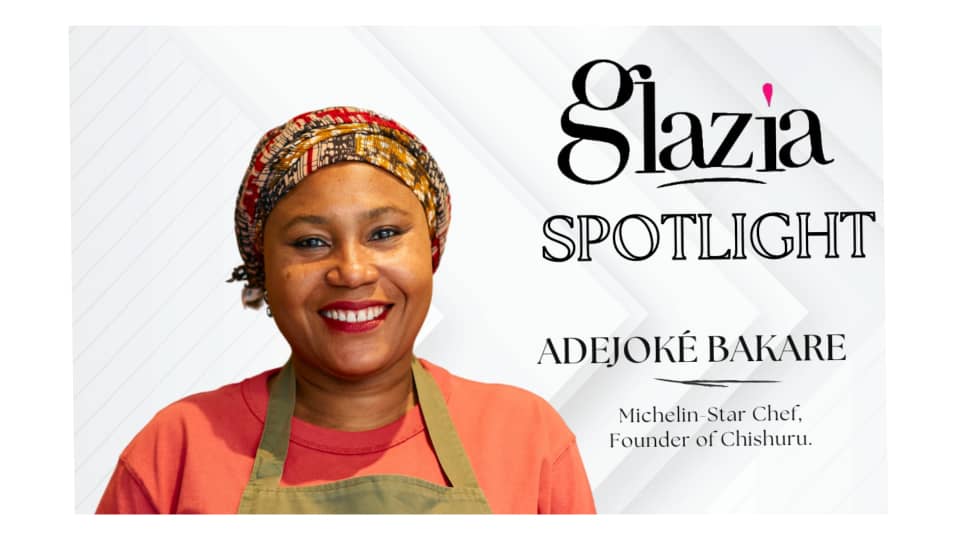
Happy International Women’s Day 2024! Kicking off our Women’s History Month Spotlight with Adejoké Bakare, Nigerian-born UK Chef, and founder of Chishuru, a West-African-themed restaurant in London. Bakare recently became the UK’s first black female Michelin-starred chef. From her roots in Nigeria to her culinary ascent in London, we delve into her inspiring story of passion, perseverance, and culinary excellence. Join us as we shine a light on Adejoké’s trailblazing achievements and the indelible mark she has made on the culinary world.
Before discussing our nominee, let’s provide a brief overview of the Glazia Women’s History Month Spotlight.
The Glazia Women’s History Month Spotlight presents an excellent platform that identifies and celebrates African women living in Africa and the diaspora. These women are innovative in their fields of endeavour, actively making an impact and transforming communities. These women do not necessarily need to have fancy titles or be celebrities. The cornerstone of the Glazia WHM Spotlight is impact and community.
“Cook from your heart, and believe in yourself!”
Adejoké Bakare
Glazia in conversation with Adejoké Bakare
Can you share with us the journey that led you from being an avid home cook to becoming the UK’s first black female Michelin-starred chef?
I studied biological sciences at Ahmadu Bello University in Kaduna, northern Nigeria, and ran a fish & chip cart in my spare time. Then I came to the UK 25 years ago with my family, intending to study here, but life got in the way! I worked in a variety of fields including property management, but always had the dream of opening my restaurant one day. I ran a couple of supper clubs in 2018 but could not shake the desire to have premises.
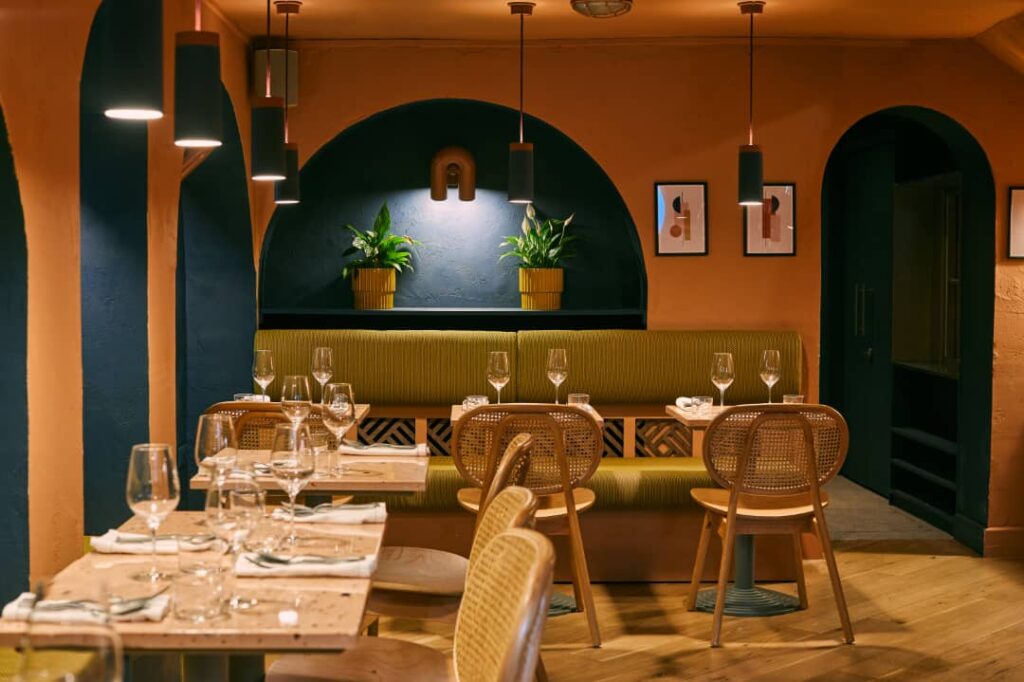
In 2019, Brixton Village ran a competition to win a three-month pop-up restaurant. My friends pressured me to enter, and to my amazement, I won, with the support of a chef called Jackson Boxer who has become a mentor to me. The popup didn’t start until September 2020 because Covid got in the way. After Jay Rayner of the Observer came in and kindly gave us a rave review, Brixton Village asked me to make the popup permanent. In April 2022, TimeOut named Chishuru as London’s best restaurant.
What inspired you to specialize in West African cookery, and how do you infuse your dishes with the contrasting food traditions of your parents?
It’s the food I know, the food my grandmother prepared for me growing up, the food I cooked for my siblings. My parents are Yoruba and Igbo respectively but I grew up in a Hausa region. The Chishuru logo means ‘three waters’ in Nsibidi, symbolizing how I aim to pull all three culinary traditions together in one restaurant.
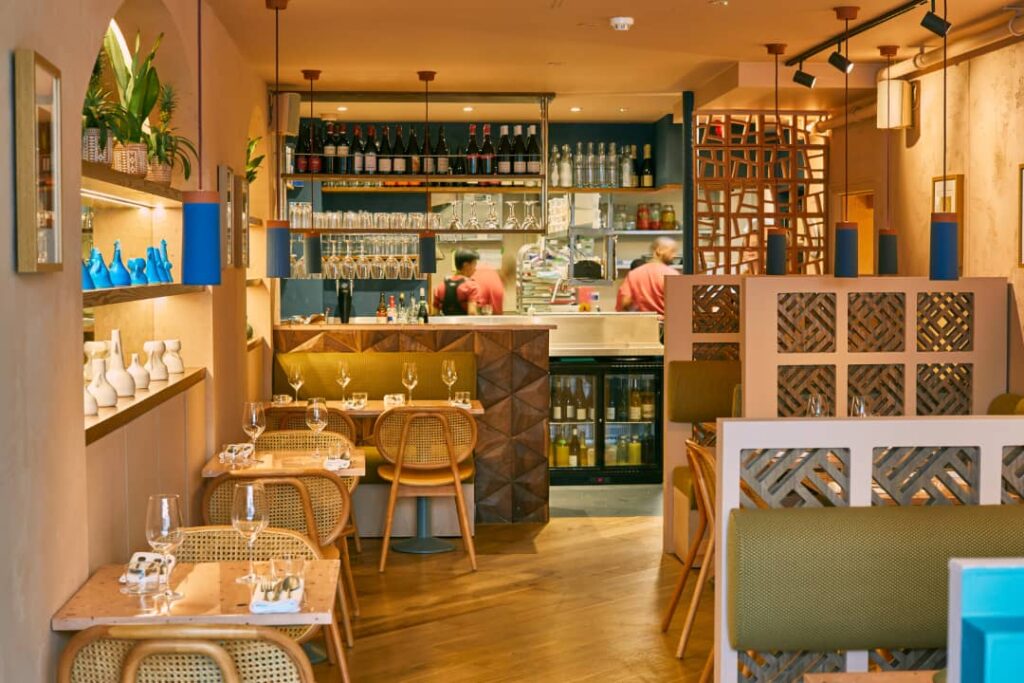
Winning the Brixton Kitchen competition in 2019 was a pivotal moment in your career. How did that experience shape your approach to cooking and restaurant ownership?
It was nothing but a learning curve! Independent restaurant ownership means becoming an expert in dozens of fields from budgeting to drainage! Running the Brixton restaurant itself only convinced me further that serving my food to customers was what I was born to do.
As a female chef breaking barriers in the culinary world, what challenges did you face along the way, and how did you overcome them?
I’m fortunate in a way that I’ve only ever worked for myself. As an independent restaurateur, you make your own rules. The challenges were more in a business sense: Matt and I offered on four sites before we got the one we’re in now. We were flatly turned down by one Fitzrovia landlord – he just wasn’t interested in having a West African restaurant on his property, and this was only six months after we won TimeOut’s restaurant of the year. I wouldn’t say it was prejudice necessarily, just narrow-mindedness.
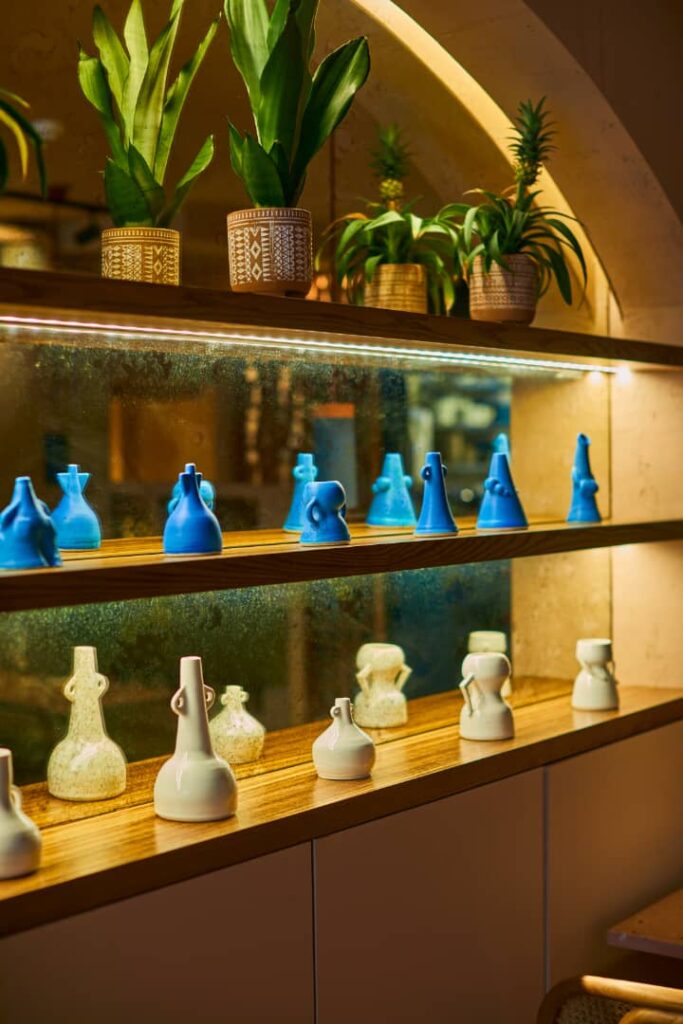
Achieving a Michelin star is a significant accomplishment. How did it feel to receive that recognition, and how has it impacted your career and the perception of West African cuisine in the culinary scene?
I was stunned into silence, I didn’t see it coming! All we knew in advance was that we were invited to the ceremony. I don’t see myself as having a career as such; I work for myself! I hope that the stars for Chishuru and Akoko are raising the profile of West African food in the UK and abroad.
Women’s History Month celebrates the achievements and contributions of women. How do you see your role as a trailblazing chef impacting the next generation of aspiring female chefs, particularly those of African descent?
I’m still just me! I hope to inspire others that achieving this kind of recognition is possible for us.
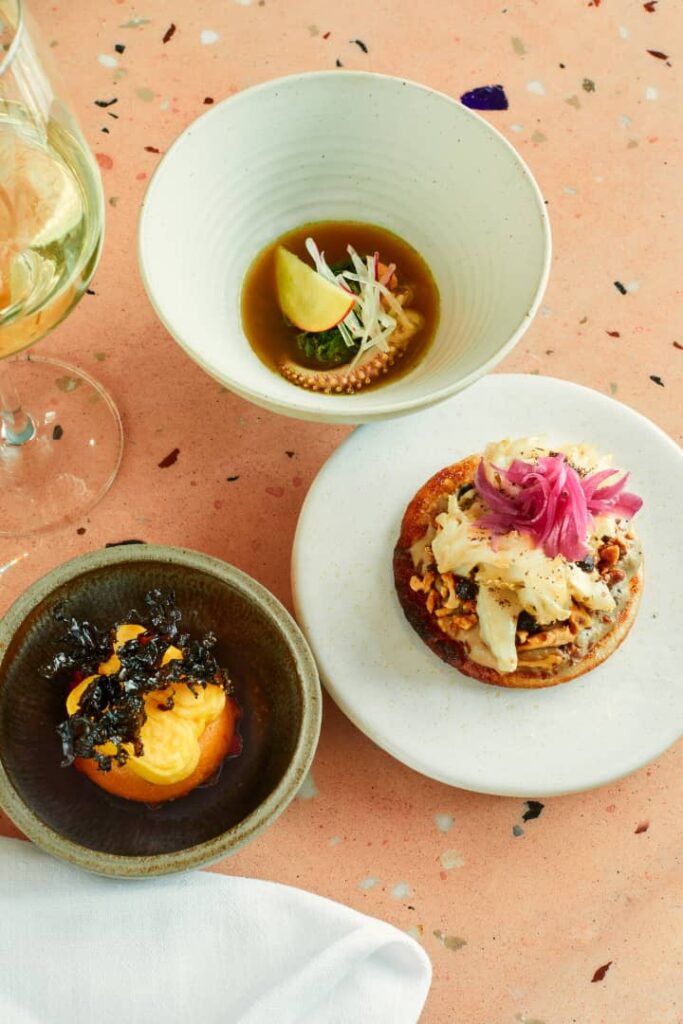
In what ways do you advocate for diversity and inclusion within the culinary industry, and what changes would you like to see in the field to create more opportunities for women and people of colour?
The restaurant is so splintered – there are some 20,000 restaurants in London alone from simple neighbourhood places to fine dining to corporate chains – that no one person can change the industry. I think about the gatekeepers – the landlords I mentioned above, but also the critics. Matt and I were very struck when we opened in Fitzrovia that other new restaurants serving more familiar food had every restaurant critic flocking to them when they opened, whereas we had to hustle for our coverage. Critics need to cast their nets more widely.
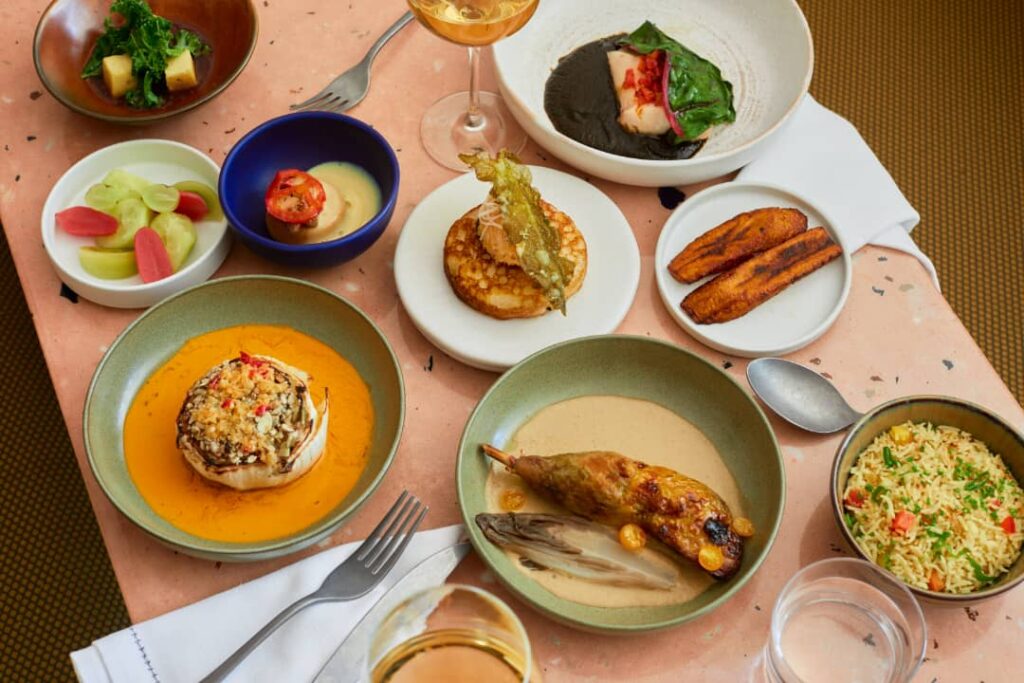
Can you share a memorable moment or experience that reflects the importance of preserving and sharing West African culinary traditions in a contemporary context?
It’s important for me to preserve my food heritage but also to present it in a contemporary context. We had a customer recently who had our moi moi dish at dinner, and her reaction was “It tastes like moi moi, it has the elements of moi moi, but it doesn’t *look* like moi moi” – she understood what I’m trying to do, it was very moving.
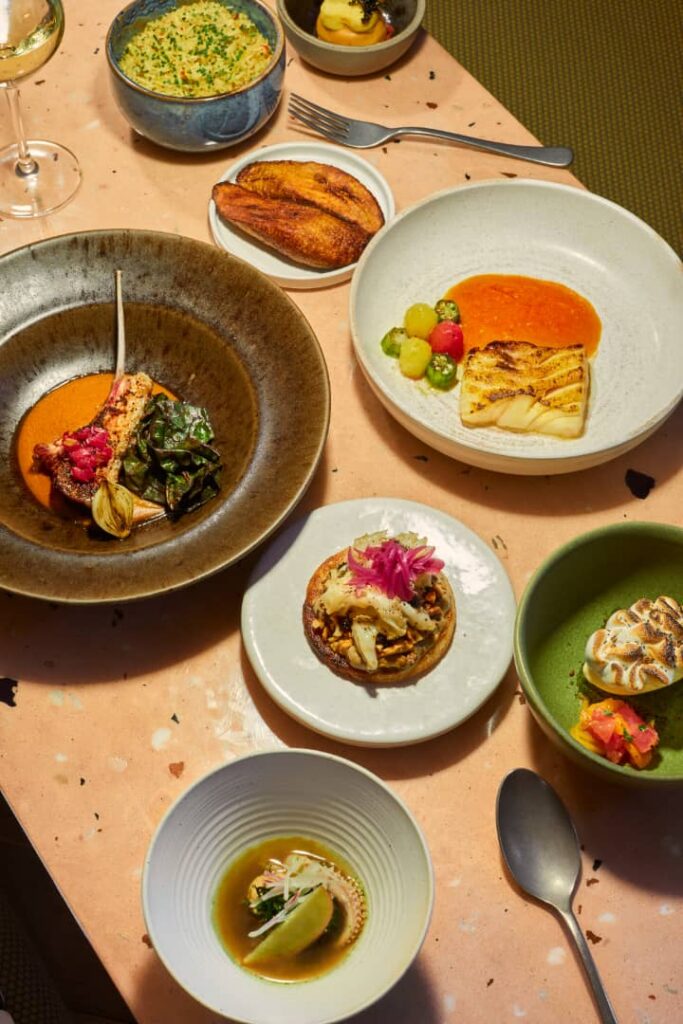
Chishuru has become known for its unique style of West African cuisine. Can you tell us more about the philosophy driving your restaurant? Looking ahead, what are your aspirations and goals for Chishuru, and how do you envision continuing to innovate and inspire through your cooking?
The philosophy of the restaurant is ‘homely’. We are not trying to do fine dining; you will never see a ‘caviar supplement’ on our menus. I’m looking to honour my culinary heritage while making it appealing to London restaurant customers. My goals are simple really: to carry on doing what we’re doing, to carry on innovating.
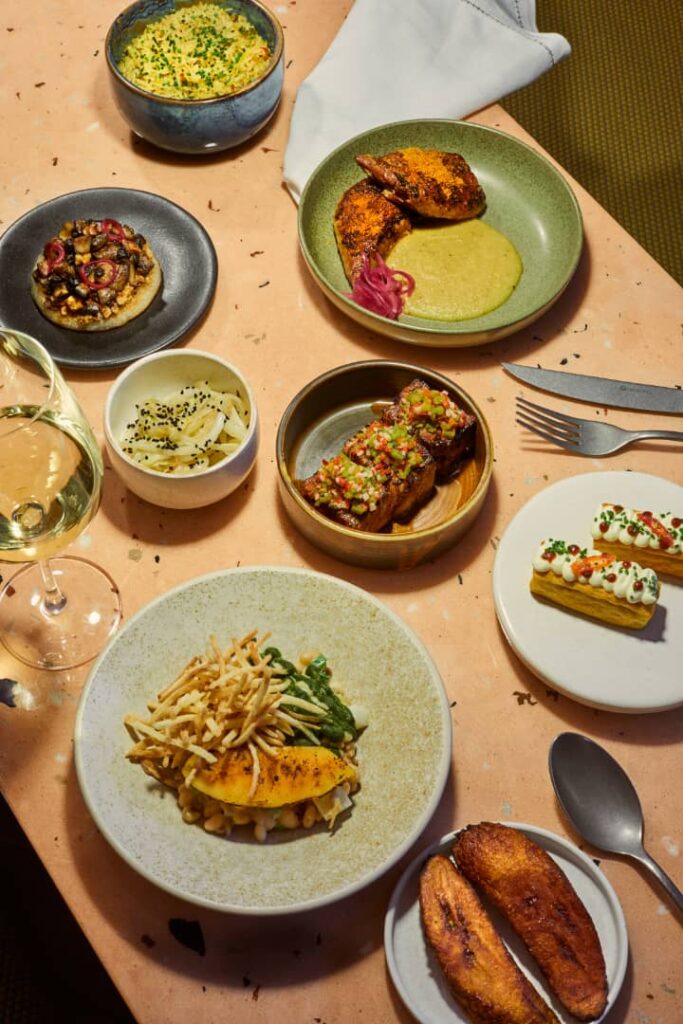
What is your message to African women who want to achieve Michelin Star status?
Cook from your heart, and believe in yourself!

